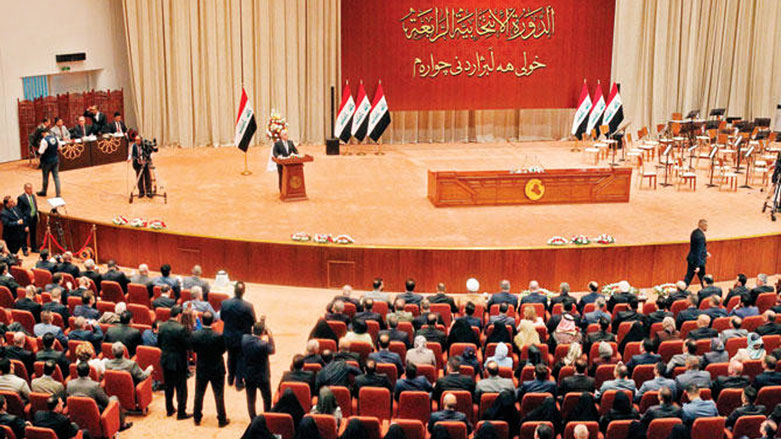US welcomes Kadhimi as Iraqi PM-designate

WASHINGTON DC (Kurdistan 24) – US Assistant Secretary of State for Near Eastern Affairs, David Schenker, expressed Washington’s welcome of Mustafa al-Kadhimi as Iraq’s next prime minister to replace Adil Abdul Mahdi, who resigned in November, in response to months-long popular protests in Iraq.
Until his nomination on Thursday as Prime Minister by Iraqi President Barham Salih, Kadhimi had been director of the Iraqi National Intelligence Service.
“We think [Kadhimi] did a fine job” in that position, Schenker told journalists later on Thursday. “If Kadhimi is an Iraqi nationalist, if he is dedicated to pursuing a sovereign Iraq, if he is committed to fighting corruption, this would be great for Iraq, and I think it would be great for our bilateral relationship.”
Kadhimi became Iraq’s intelligence chief in 2016, as then-Prime Minister Haider al-Abadi replaced a figure who had been appointed by Nuri al-Maliki, whose Shi’ite sectarianism is seen as one major reason for the rise in Iraq of the so-called Islamic State.
The 53 year-old Kadhimi left Iraq in 1985, fleeing Saddam Hussein’s regime for Great Britain, where he lived until 2003. After the US-led overthrow of that regime, he returned to Baghdad, where he worked as a journalist, including for Al-Monitor.
Kadhimi is the third person to be nominated prime minister, following Abdul Mahdi’s announcement of his intention to resign. Kadhimi has 30 days to gain parliamentary approval, something the two previous candidates could not manage to do.
The first candidate, Mohammed Allawi, a former communications minister, was seen as a Shi’ite partisan and failed to gain the support of Iraq’s Kurds and Sunni Arabs. In fact, when he withdrew his nomination, the Kurdish leadership welcomed it.
Subsequently, Salih designated Adnan al-Zurfi, a former governor of Najaf, as prime minister.
Read More: Iraqi president appoints Adnan al-Zurfi as new PM-designate
Although the US had welcomed Zurfi’s nomination, he was opposed by the most powerful Shi’ite parties, as well as Iran. Indeed, earlier this week, the commander of the Quds Force of Iran’s Islamic Revolutionary Guard Corps (IRGC), Brig. Gen. Esmail Ghaani, visited Baghdad and pressed for rejecting Zurfi as Iraq’s next prime minister.
Col. Norvell DeAtkine (US Army, Retired), former director of Middle East Studies at the US Army’s John F. Kennedy Special Warfare Center and School at Fort Bragg, explained to Kurdistan 24 that it wasn’t entirely clear why the Iranians now seemed to accept Kadhimi.
“Earlier, they rejected him, accusing him of being an ‘American spy,” DeAtkine said, but “now they may see him as preferable to Zurfi.”
Also, “Kadhimi has broader support than Zurfi” among Iraq’s major groups—Shi’ite and Sunni Arabs, as well as Kurds, and “the Iranians may have calculated he would win parliamentary approval, whether they accept him or not,” DeAtkine added.
He also noted that the “pro-Iran factions in Iraq seem to suffer from internal divisions,” with some welcoming Kadhimi’s designation and some attacking him. “Ghaani is not as influential with them as [Qasim] Soleimani,” whom the US assassinated in January, “so the IRGC doesn’t have the same leverage as before.”
Editing by John J. Catherine
